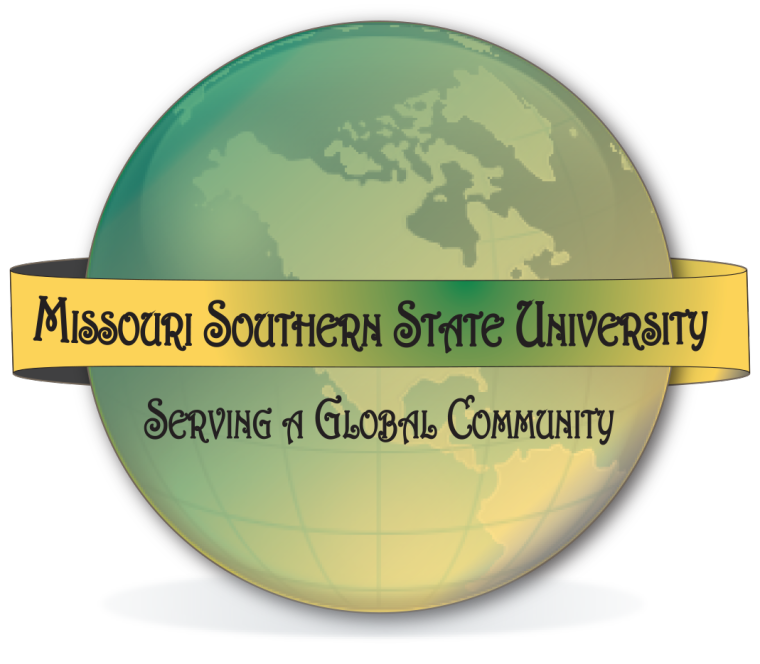International mission still at risk?
Illustration by Robin Fjelstad/The Chart
International mission still at risk?
As the search begins for candidates to fill the position of Missouri Southern president, the other hot topic of the day, the future of Southern’s international mission, has yet to be settled.
Former University President Bruce Speck vacated his position in June amid questions about his actions, including a push he instigated to revise the state statue mandating Southern’s international mission. Since Speck’s departure, Interim President Alan Marble has directed the ongoing “Continuous Quality Improvement” audit of campus programs, which has also targeted the University’s international programming.
The Continuous Quality Improvement report, released in October, gave a grade of C to both the Institute of International Studies and the international studies degree program, recommending both programs for restructuring, including potential budget cuts. The Institute of International Studies is responsible for Southern’s signature themed semesters as well as most study abroad programs.
Southern’s international mandate was established in 1995 by Missouri House Bill 442 which ordered the University to “develop such academic support programs and public service activities it deems necessary and appropriate international or global education as a distinctive theme of its mission.”
“It makes Missouri Southern distinctive and unique,” said Chad Stebbins, director of the Institute of International Studies. “Why would you want to eliminate something that made you distinctive and unique? Other universities have their specialties and their niches, international education is certainly ours. Why would you willingly give it up when there’s nothing else that would replace it at this point in time”?
According to the Institute of International Studies website, the faculty and administration of Missouri Southern spent the next year [1996] developing the outline of a comprehensive plan of international education. Included was the establishment of the Institute of International Studies, charged with overseeing the internationalizing of the campus.
“The University has invested in international mission,” said Stebbins. “Faculty with international experience, international credentials have been hired. International programs have been developed. The foreign languages have been enhanced. We’ve spent 20 years working on it. Why would you suddenly turn away, when there’s nothing there to replace it? How could anything replace it?”
The announcement, in April 2013, that Senate Bill 67, removing the international mission from the state statute, had passed the Missouri State Senate and was awaiting approval by the House of Representatives was met with an outpouring of negative reaction from not only University faculty, staff, and students but from University alumni as well. A small article in the Joplin Globe made Southern’s community aware of the threat for the first time. When the Board of Governors denied any knowledge of the matter, Speck admitted he had instigated the proposed change.
“Literally hundreds of people were outraged last April when the news came out of what Missouri Southern [Administration] was attempting to do in the State Legislature, certainly faculty and students, but maybe the greatest outpouring of support for the international mission came from the alumni,” said Stebbins.
Alumni members started an open Facebook group called MSSU Alumni for the International Mission, a petition to the University on change.org, as well as a letter writing campaign to the Board of Governors denouncing the attempts of the University administration to abolish the international mission. The Facebook page has 710 members and the petition has 362 signatures.
“All of those efforts were well worth it because we just have these stories from former students coming out of the woodwork,” said alumna Ivy Love, ’10, French and Spanish major. “Students who[se] careers or career plans, were changed; self-perception was changed; perspective on the world was changed, because of programs that were closely linked to the international mission. So it was really gratifying to see all of that, to see this enormous impact that the mission has already had. And of course that brings up the question of how we can best protect the mission in the future, so it continues to impact students in the future and students who are currently at Southern.”
Senate Bill 55, signed by Gov. Bob Holden on July 12, 2003, which changed Missouri Southern State College’s name to Missouri Southern State University-Joplin, also designated Missouri Southern as a statewide institution of international or global education.
“We’re known statewide and regionally as a university that has an international mission,” Marble said. “It doesn’t really prohibit us from doing anything else; in fact it probably empowers us to do more.”
Marble, interim University president since July 1, 2013, is an alumnus of Missouri Southern, having earned a bachelor’s degree in 1979.
“I think the international mission, the international approach could be broadened,” said Marble. “We’ve talked about that and how we might do it with our business department, partnerships overseas and maybe have more international students attend here on this campus — other things we can do to broaden the exposure rather than shrink it.”
The overwhelmingly negative reaction to attempts to remove the International Mission designation from Missouri Southern may require the search for a new president to include the understanding that support of the mission is paramount in candidates considered for the position.
“This is a global world and we’ve been a leader for years,” said Marble. “So unless we have something that should replace it or be added to it, I don’t see why we would mess with it … our students are being equipped with a global perspective that other students aren’t exposed to. In the world we live in now what could be more valuable?”
Your donation will support the student journalists of Missouri Southern State University. Your contribution will allow us to purchase equipment and cover our annual website hosting costs.
















